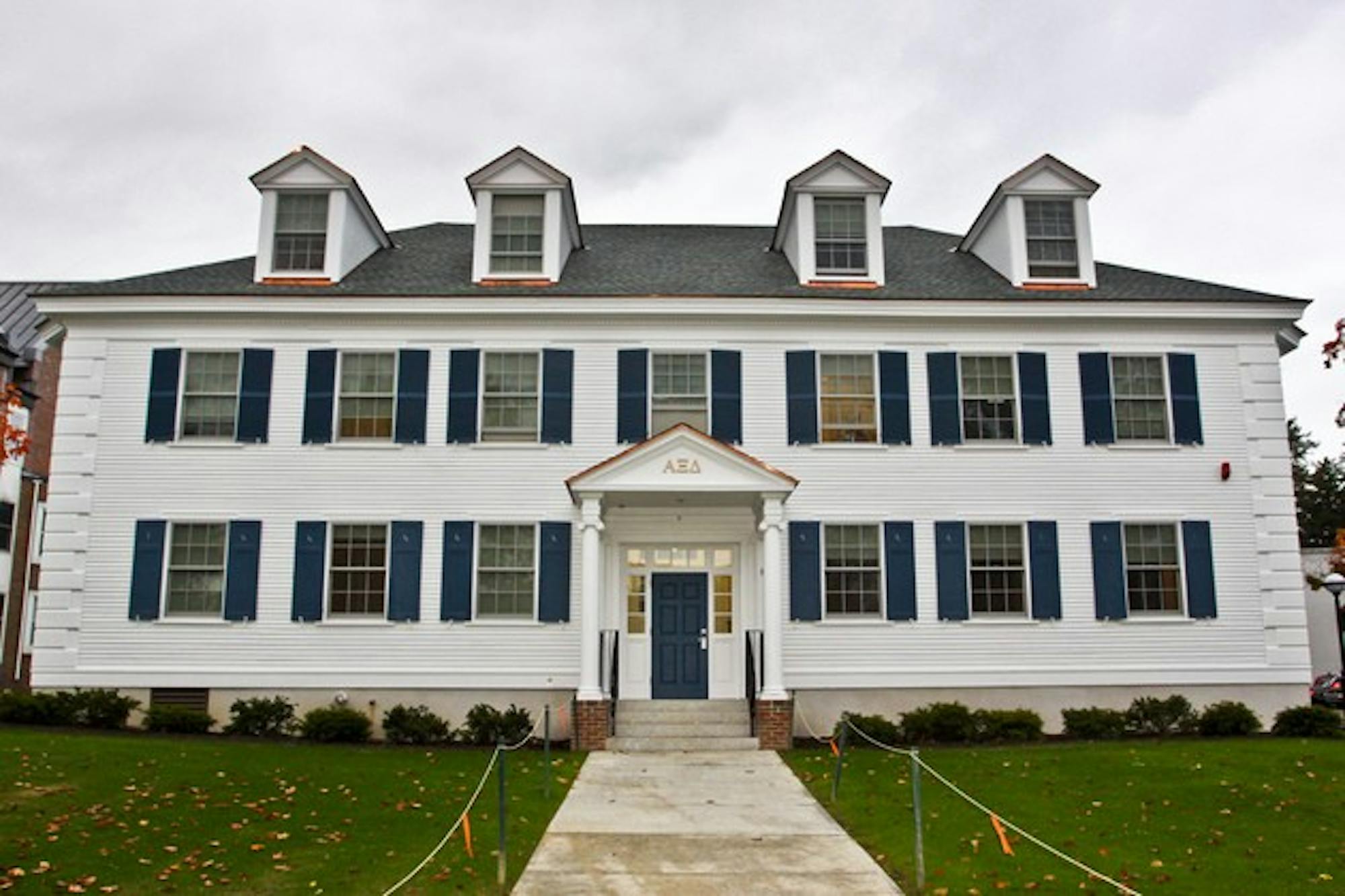Plans to renovate the ORL-owned house designated for Alpha Phi sorority are on hold due to financial restraints, and ORL has not yet obtained a physical plant for Kappa Delta sorority.
Kappa Delt's national representatives understood that the College would be unable guarantee their Dartmouth chapter a house when the sorority decided to colonize at the College, Redman said, adding that obtaining a house is part of his office's "very" long-term plans.
ORL staff members met with Kappa Delt national representatives at the end of Summer term to discuss the chapters' tentative plan to rent the property at 25 East Wheelock St. as a "de facto" physical plant, Redman said. The house, which is owned by a private landlord, is divided into apartments. Members of Tri-Delt had previously leased all of the apartments during the Summer term while their house was being renovated.
Redman said that his staff "strongly advised" against Kappa Delt's proposal because the house is zoned as a private residence. Hanover law prohibits more than three unrelated people from living together in a private house.
The foot traffic in and out of the house would likely attract authorities' attention, he said, jeopardizing the College's relationship with the town and affecting future Greek housing projects.
Lindsey Bryant, a Kappa Delta national chapter consultant, told The Dartmouth in an e-mail that Kappa Delta national is fully complying with all Panhellenic guidelines and College recommendations for acquiring chapter housing. Kappa Delta national representatives did not respond to repeated requests for further comment. Kappa Delt President Adriene McCance '11 declined to comment.
Construction on Alpha Phi's residence is currently on hold due to College budget cuts. The renovation of the planned physical plant, located at 26 East Wheelock St., was originally scheduled for completion by fall 2009, but was postponed in November 2008 after the College decided that borrowing the necessary funds for the project was imprudent. ORL does not have concrete plans to resume the project.
"We have done nothing in terms of planning and design since [November]," Redman said.
A national policy prohibits members of Alpha Phi from commenting for this article, according to sorority members.
Alpha Phi currently has housing on the fourth floor of Hitchcock residence hall, which was recently vacated by Alpha Xi Delta sorority. AZD occupied the floor from fall 2008 through spring 2009 while waiting to move into a permanent physical plant.
Renovations to AZD's new house, located at 17 East Wheelock St., were completed on Sept. 18. The residence is currently occupied by 22 members of the sorority, although minor interior work is still to be completed, Director of Residential Operations Woody Eckels said.
The renovation, which cost $3 million, converted the original building of faculty apartments into a house with common social space and 23 single-occupancy rooms, Eckles said. Although the house has a basement, it will not function as a social space.
"Social space in the basement was requested and denied from day one," Redman said, pointing to the physical design of the pre-existing structure.
Part of a major steam tunnel line runs directly through the basement, so much of the area is closed. The investment required to bring the remaining space up to code as a place of assembly was too large given the project's budget, Redman said.
"Regardless of the type of organization or the programming needs of any organization housed in that physical plant, the basement would not have been designed as a social space," Redman said.
AZD President Kassie Archambault '10 said that AZD members anticipate holding "many successful programming events" in the main room of the house's first floor, although they would have liked to open the basement as a social space.
AZD is fully equipped to house students with disabilities, Eckels said. The side entrance can be reached via ramp, and the house's first floor has two accessible bathrooms and one accessible bedroom.
Tri-Delt is now also handicap accessible, following its recently completed summer renovations.
A wheelchair lift was installed to permit access to the first floor, Eckels said. Although the second floor is not accessible, ORL modified the chapter's current television room so that it could be converted into a first-floor bedroom if necessary, and also equipped the first floor with an accessible bathroom.
The renovation also expanded the organization's chapter room by including an addition to the back of the house.
"It's now more equitable to what other houses have," Eckels said.
The new room has a fire capacity of about 100 people, up from 65 before the renovation, he said.
"We're hoping to be able to host a cappella and other groups," Tri-Delt President Joanne Schneider '10 said, explaining that the old chapter was "too cramped" to hold such events.
Other renovations included improvements to the house's kitchen, as well as re-carpeting and painting on the second floor. No changes were made to the house's basement, which is currently not used as a social space.
Redman acknowledged the importance of basements as social spaces on the Dartmouth campus, but said he hoped sororities could find alternate ways to socialize.
"What I would say to sororities is, If all you really want is just to be like men in their basement, I hope you're better than that,'" he said.




